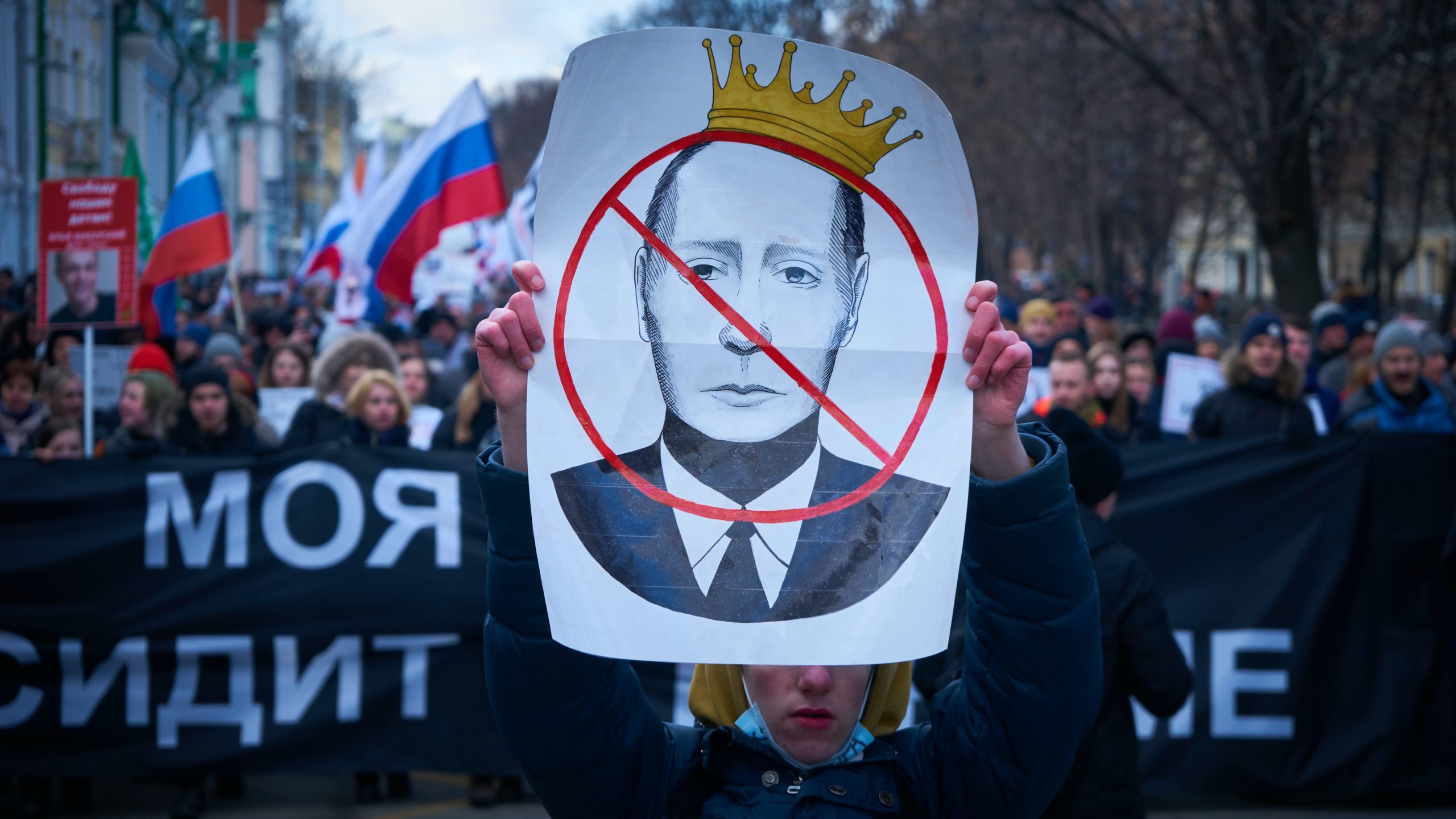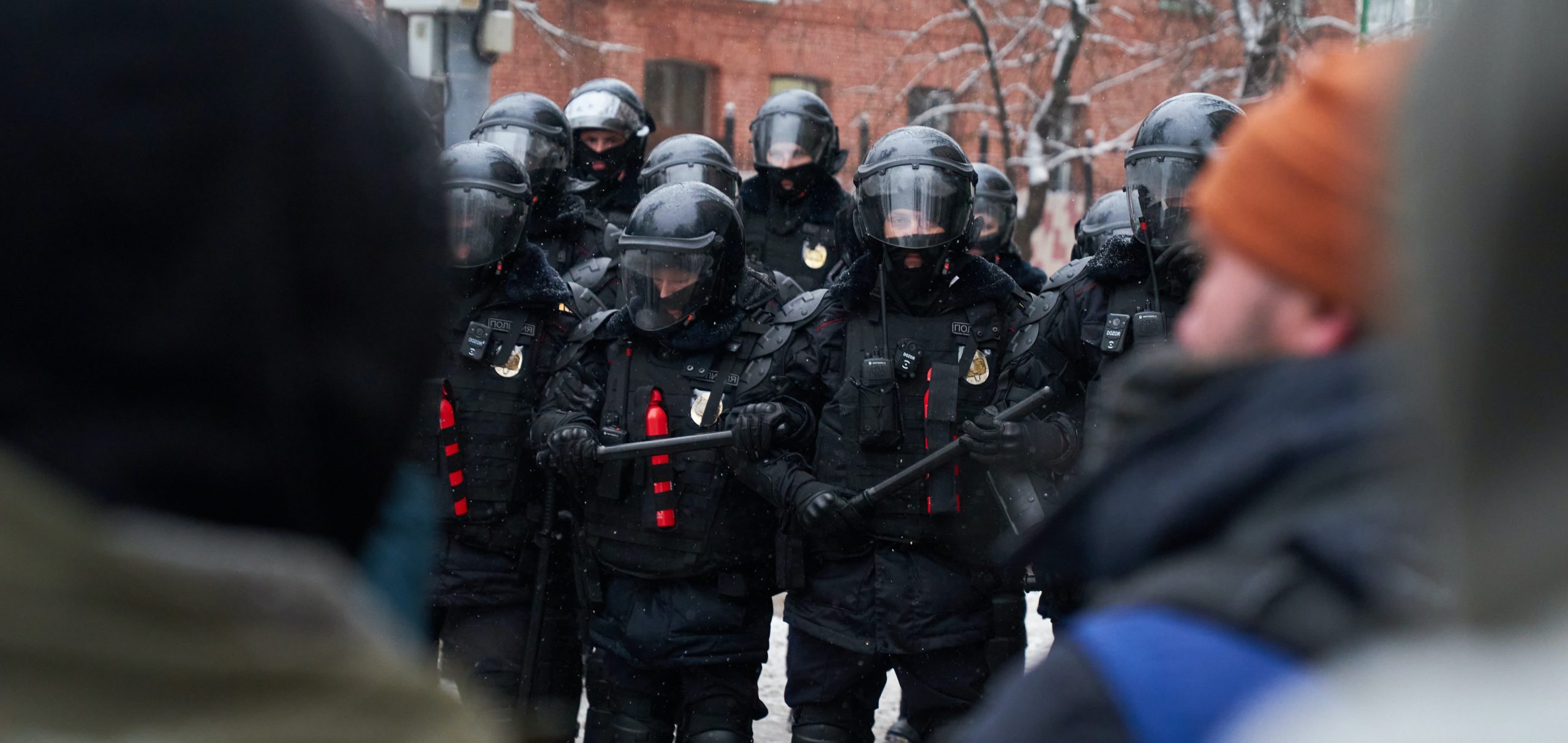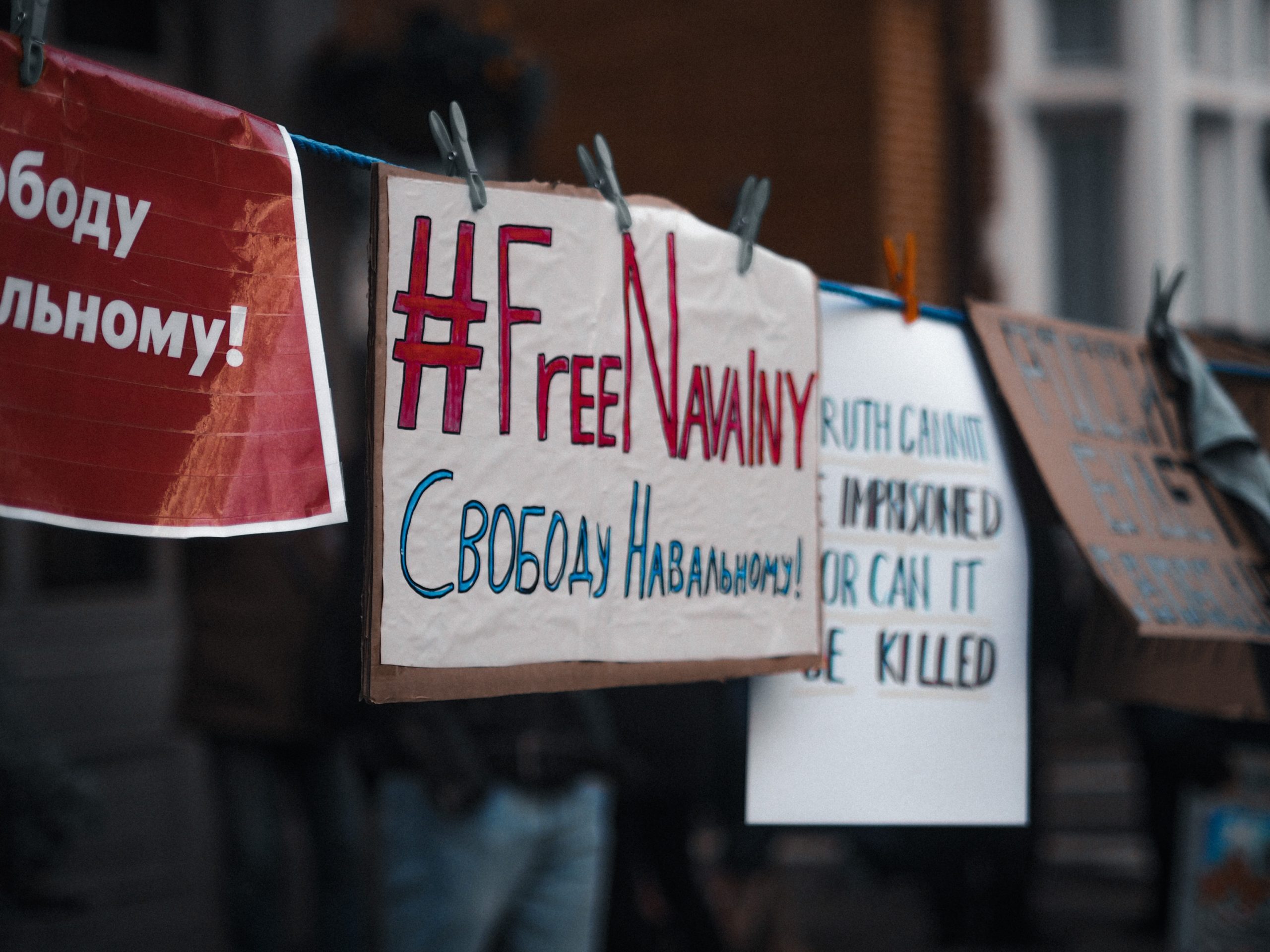Politics in the Regions: The Reasons for Decline and Paths to Rebirth
By Fedor Yerokhin April 03, 2020

By Fedor Yerokhin April 03, 2020

At the present time, the political life of Russia’s regions is all but destroyed. There are no organizational or financial resources for it and such a state of affairs is the result of a deliberate strategy to destroy democracy in Russia which has been implemented throughout the last 20 years.
Despite the fact that various regions of Russia have their own nuances and special features, on the whole, the situation is the same everywhere: the head of the region and the heads of the major municipalities are approved, and de facto appointed by the presidential administration, and all the rest of the regional leadership is appointed and approved by the governor. Those who disagree with this state of affairs are forced out of official politics.
On the whole, it should be acknowledged that after the presidential elections of 2018, political life in the regions was completely sterilized; so in that sense, there is only a point in discussing the reasons which led to this state of affairs and to think about the prospects for Russia to get back on track to democracy and federalism. Obviously, without radical changes in the leadership of Russia, the situation will not change, and as long as the laws, and most importantly, the president of Russia remains unchanged, any sort of revival of regional politics cannot be expected.
Democracy and Federalism in Russia
Democracy and federalism in Russia turned out to be powerless before the onslaught of autocracy in the early 2000s, because they had no real support either in the government itself or among citizens – and such a state of affairs had been programmed by the creators of the political system of Yeltsin’s Russia.
Even those government agencies which were formed directly by citizens had no real autonomy from the higher levels of government, primarily at the federal level, because the president was able to rid himself of inconvenient regional leaders and the regional leaders were able to oppress the municipalities. Naturally, in such circumstances the level of citizens’ trust in municipal and regional government was rather low, so the Kremlin was not afraid that some mayor or governor would be bold enough to argue with it, that they relied on the real support of the people, rather than on fixed elections. The local elites wasted so much effort on fighting among themselves that they were gladly ready to agree to the federal center’s terms, just to get rid of their rivals. In the end, a tactical alliance with the federal center became a trap; once they fell into it, local elites lost their political agency. This is what Putin exploited when he set about sterilizing regional politics completely.
The current state of affairs and its incorporation into the renewed text of the Russian constitution is the result of a constant and consistent attack on democracy and federalism. This has been under way for the entire 20 years of Putin’s rule, but as has been noted, it began much earlier. Essentially, the system created by Yeltsin in 1993-1996 had to guarantee the president that even if he had a minority in parliament and his personal rating was low, and if members of the opposition come to power in a number of regions and major cities, he could still remain in power and successfully block all the efforts of his critics.
Precisely within the framework of this concept, the prospects for local and regional self-government were in fact destroyed. Since all real powers were concentrated in the president, and all the other branches of government (parliament, the courts, the regions, and local self-government) were intentionally weakened, the deliberate course of the new President Putin enabled him to destroy both federalism and democracy in several years, without encountering any real resistance.
The Attack on Self-Government
Thus, as has already been said, the constitution of 1993 was written not so much to create a firm foundation for democracy and federalism in Russia, but rather to serve the interests of Russian President Boris Yeltsin. Its authors were motivated by fear of a communist revanche, which they expected “from below.”
Obviously, local elites fully shared that fear of Yeltsin’s entourage, or rather exploited it for solving their own tactical problems. The presence in Russia in the 1990s of the so-called “red belt,” that is, the regions where the Communist Party of the Russian Federation (CPRF) traditionally garnered many votes, forced the Yeltsin team to search for any allies for themselves who were prepared not to allow a victory of the CPRF and in exchange for that, forgive them any abuses.
Thus, emerged the phenomenon of “electoral reservoirs,” that is, regions guaranteed to show a high turn-out at all elections with high indicators for the party of power and its candidates. Essentially, a number of local leaders simply changed their loyalty for financial bonuses and impunity. This is exactly what defined the nature of interrelations between the federal center and the regions. Therefore, when Putin took the line of restricting the real powers of local bodies of government, the elites of the regions were already rather isolated from the citizens and did not have high authority among them which would have enabled them to rely on the support of voters in opposition to the Kremlin’s policy – if they even had such a wish at all.
Nevertheless, under Yeltsin, political life in the regions was preserved – among other reasons because the Kremlin played on the contradictions of the local elites, in each case wishing to find a counterweight to an ambitious governor through the head of a regional center or in some other way. Taking into account that Yeltsin’s ratings were extremely low all through the second half of the 1990s, the Kremlin was forced to reconcile itself to a certain level of political freedom in the regions, in the wealthiest of which quite interesting political systems had been formed and operated relatively successfully. For example, in Sverdlovsk Region there was a bicameral regional parliament where the upper house was elected every two years through elections in the districts, and the lower house by party lists; in fact the main fight was usually among the regional parties, whereas the federal party did not have significant influence. But all of this was possible because Sverdlovsk Region was relatively wealthy, which enabled numerous regional industrial groups to exist, which were interested in political representation among other things.
This is why we must not forget that Alexei Kudrin’s tax reform finally put to death the prospects for political life in the regions, the result of which led to the total financial dependency of the regions on the center and made struggling for power in their regions pointless; if the center distributes cash and everything comes from the center, then it is quite logical that a person appointed from the center is at the head of the region.
The local elites accepted the rules of the game and instead of resistance to the changing viceroys, tried to cooperate with each new governor because any other strategy is fraught with serious problems and losses.
Local Elites
We cannot overlook the quality of the local elites as well; in the absolute majority of cases, already by the mid-1990s, power in the regions had wound up in the hands of the Soviet nomenklatura. On the one hand, it preferred the administrative-command methods of leadership and leaned toward the necessity of taking part in honest and competitive elections, but that is why it was prepared to obtain powers from the leadership and not the public. On the other hand, it turned out to be involved in corrupt schemes which enabled the federal government to control any local leader by the kompromat [compromising material] compiled on him. In many cases, it was these people who kept power in their hands all through the 1990s and 2000s, until the Putin administration gradually, but methodically, got rid of them.
The situation in Sverdlovsk Region was illustrative, where Arkady Chernetsky, mayor of the regional center, remained in his post from 1992-2010, but Eduard Rossel, governor of Sverdlovsk Region, had in one way or another headed the region from 1991-2009 (with a break from 1993-1995). Both of them came out of the Soviet nomenklatura, and despite the undoubted political talents and readiness for participation in competitive politics, both were drawn to authoritarian methods and were not ashamed of using manipulative techniques in the elections.
All the years they were in their posts, these politicians and their teams waged an unceasing war, but in the end both of them gave up their power, not by losing elections, but by subordinating themselves to order. Now both of these rivals represent Sverdlovsk Region in the Federation Council without any real weight in regional politics.
It is noteworthy that even after the departure of Chernetsky from the post of head of Ekaterinburg, his team resisted pressure from the regional government for several years, which created a certain space of political struggle and even enabled the non-system politician Evgeny Royzman to win the elections to head of Ekaterinburg (by that time, this position had already become symbolic). But this resistance had purely economic reasons and in no way presupposed criticism of the federal government and its policy. On the eve of the 2018 presidential elections, the city team finally capitulated, and with that, politics in the region ended. In May 2018, Evgeny Royzman was forced to give up his powers as head of Ekaterinburg prematurely, and the city charter no longer stipulated new direct elections. Despite the specific nature of the situation in Ekaterinburg and Sverdlovsk Region, in the end even there, the Kremlin achieved its aims – as in all other regions of Russia, rich and poor, national republics and ordinary regions and territories.
What Is to Be Done?
What can and should be done, so that democracy is returned to Russia and cannot be so simply overthrown? As was said at the very outset, without changes at the federal level, we should not expect a flourishing of politics in the regions. But it is important not to repeat the mistakes of the past and not create the prerequisites so that democracy and federalism in Russia could be overthrown some time again.
First, it is necessary to have the constitutional transfer of the maximum number of political, legal, and financial powers to the level of local self-government. Even the regional level of government must be not be as influential as the municipalities. Essentially, the regional administrations must be involved only in the creation and maintenance of the general infrastructure and coordination of the efforts of local communities. It is much harder to take control of thousands of municipalities with great powers, elected by direct elections, than several dozen regional governments. This is exactly why the municipalities must become the foundation of democracy and the guarantor of the separation of powers in Russia, or otherwise everything will rapidly return to the current state of affairs.
Secondly, the restrictions on the creation of regional parties must be removed. Taking into account the dimensions of Russia, it is more logical to prohibit federal parties as such, motivating regional parties to form blocs at the federal level around common program lines and interests. Federal politics must be made in the regions and municipalities and not the opposite.
Third, the incorporation of a parliamentary system of governance at all levels of government – from the federal to the municipal – seems correct, that is, in both the regions and in the major cities, executive power must be in the hands of the head of government elected by the parliament. This will enable the destruction of the prerequisites for a revanche of Putinism several years after the departure of Vladimir Putin from politics, because it will destroy even the theoretical possibility of subordinating one level of government to another through personal agreements or blackmail. On the whole, all of Russia’s history teaches us that any opportunity to concentrate power in the hands of one person rather quickly leads to authoritarianism and a lack of change in government – and not only at the level of the head of state.
Fourth, any attempts to return Russia to the path of democracy and federalism are unthinkable without lustration not only at the federal but also at the regional and even municipal level. The main reason why the democratic endeavors of the 1990s were so easily overthrown was the fact that in the early 1990s, real power in Russia was left in the hands of descendants of the Soviet nomenklatura. Taking into account by whom and how the regional and municipal bodies of governments were formed in recent years, keeping these people in politics will inevitably lead to a revanche in a very short time. There are quite enough new people for politics at all levels in Russia, but for them to get involved and not lose at the very first elections to the re-painted Putin nomenklatura, the latter must be lawfully excluded from the process. Otherwise, everything will come full circle in this new, reimagined future.
Translated by Catherine A. Fitzpatrick
By Fedor Krasheninnikov
April 01, 2021
 Article
Article
By Fedor Krasheninnikov
March 25, 2021
 Article
Article
By Fedor Krasheninnikov
April 02, 2021

By Fedor Krasheninnikov
April 01, 2021
 Article
Article
By Fedor Krasheninnikov
March 25, 2021
 Article
Article
By Fedor Krasheninnikov
April 02, 2021
